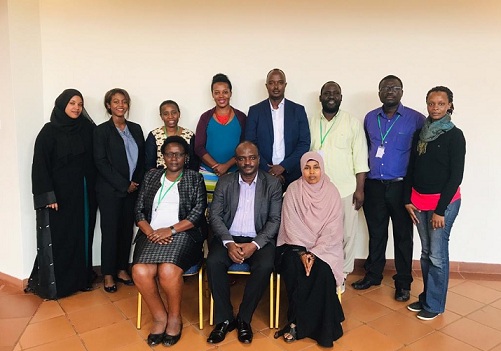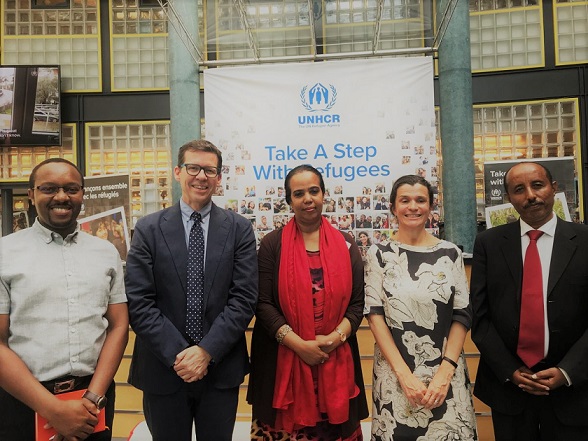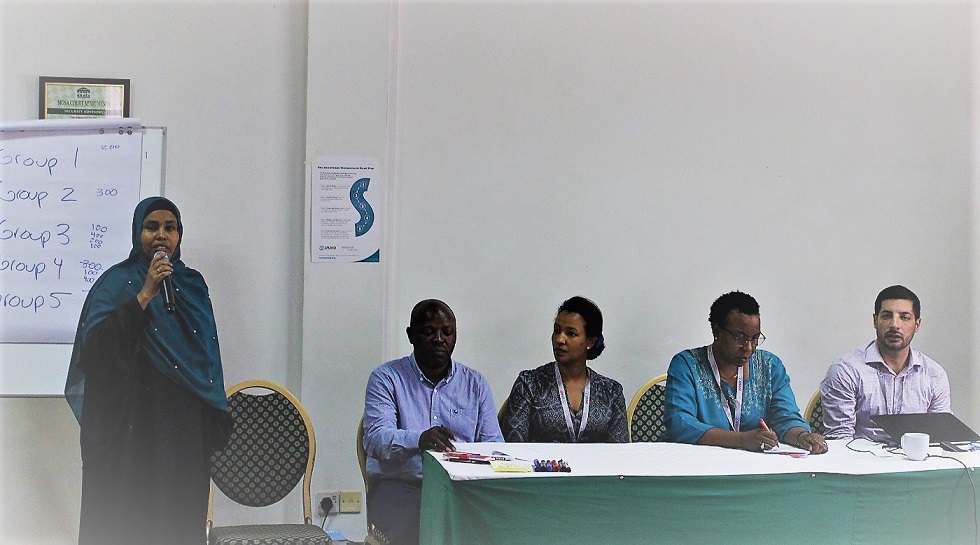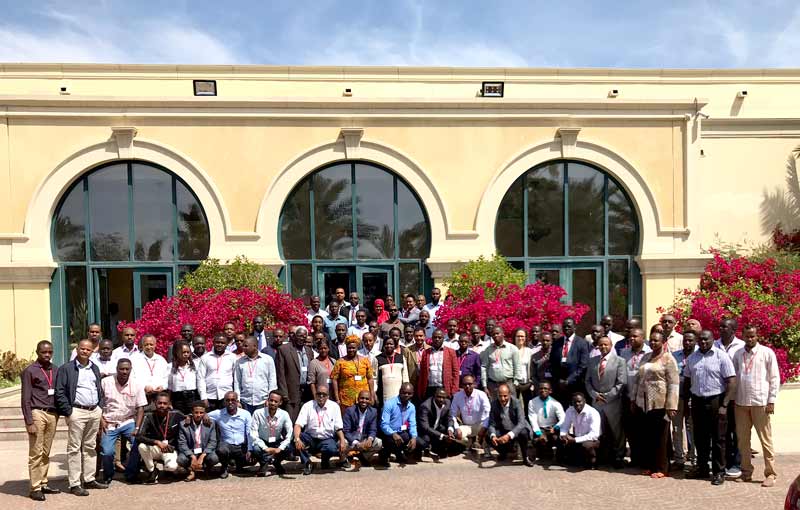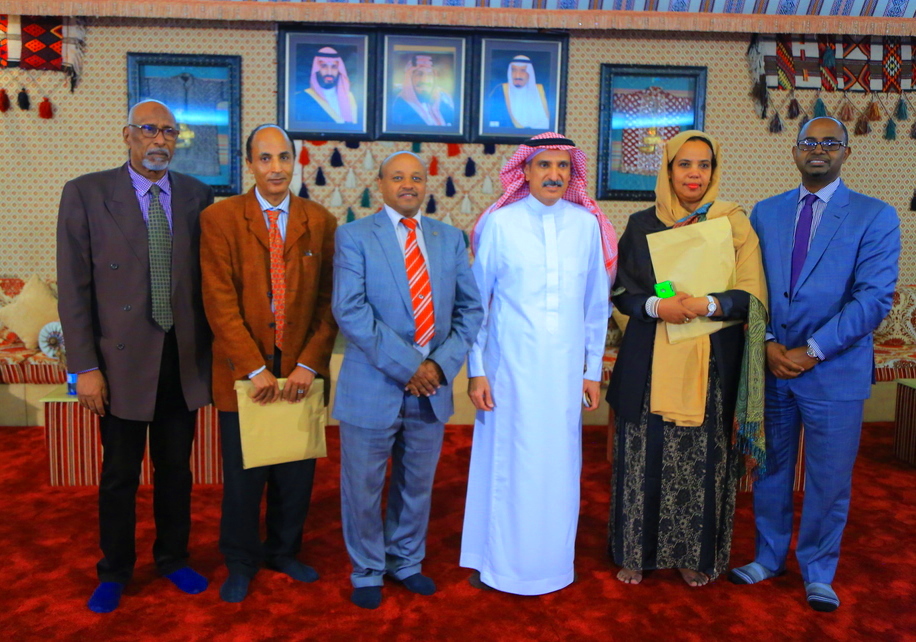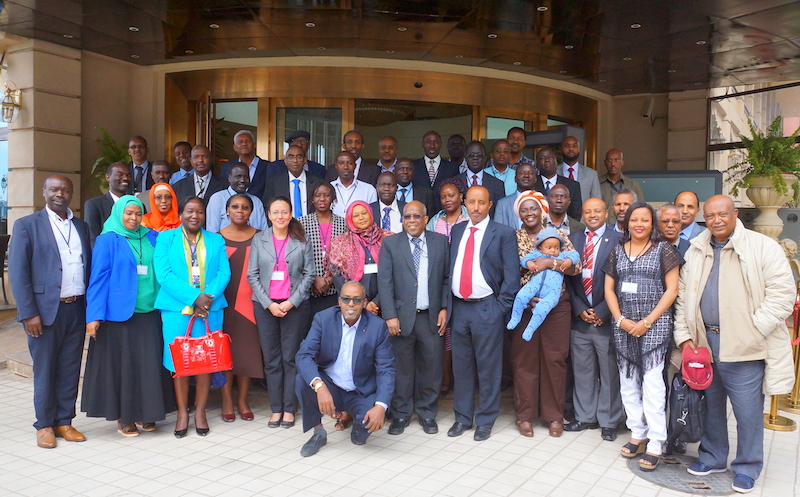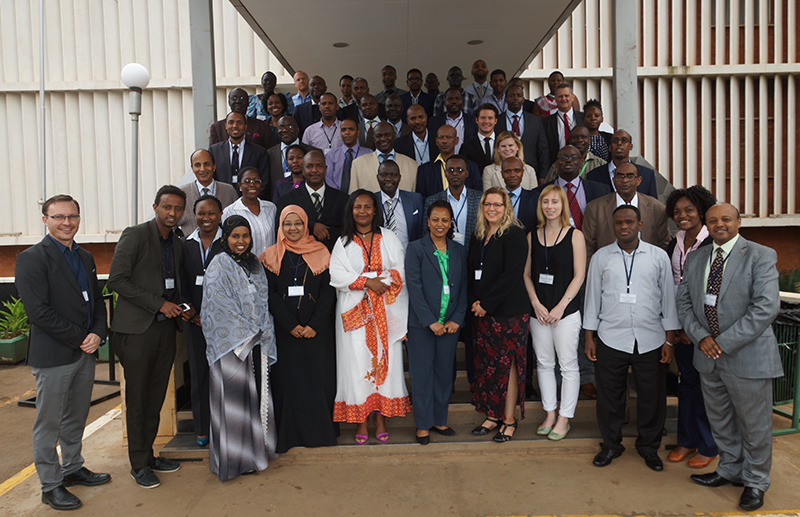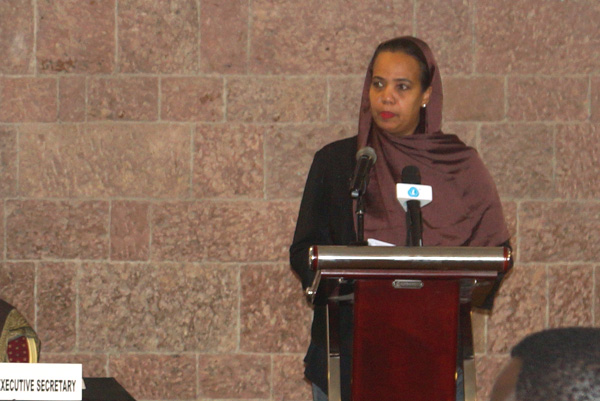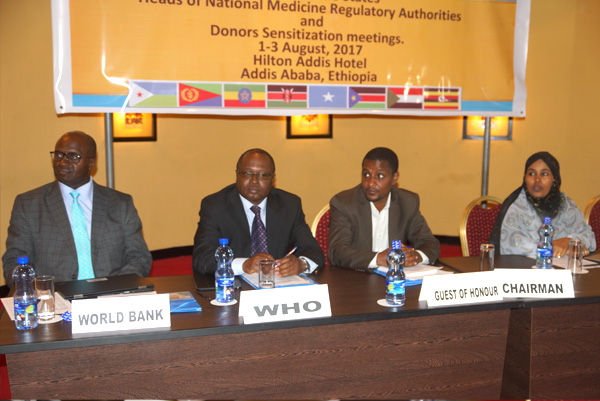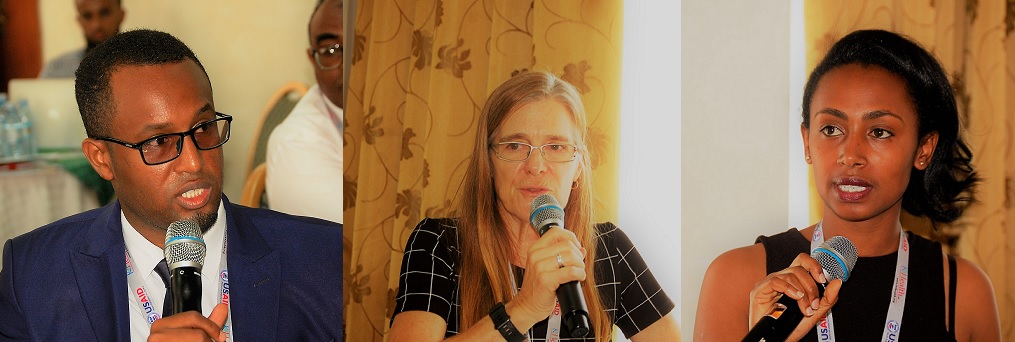
05 April 2019, KAMPALA (Uganda): The Intergovernmental Authority on Development (IGAD) this morning closed a Knowledge Management (KM) and community of practice workshop on health in Kampala in collaboration with the John Hopkins University’s Knowledge for Health Project (K4Health) that is funded by the US Agency for International Development (USAID).
The KM workshop reviewed and validated the IGAD KM Assessment Report, and also set the base for a KM for Health Strategy and the establishment of a Documentary Repository and Sharing System for health.
One of the main aims of this workshop was to address knowledge management gaps identified during the KM Needs and Gaps assessment that was conducted in August and September 2018. But also, this five-day workshop was an occasion to train the 35 participants drawn from IGAD member states and IGAD secretariat on basic principles, processes and tenets of Knowledge Management (KM).
Ms. Hilina Dejene Desalegne, Monitoring and Evaluation Expert at Policy, Plan, Monitoring and Evaluation Directorate-Federal Ministry of Health Ethiopia found the training sessions on how to use knowledge management for health very useful. “We were already using knowledge management in a somehow traditional way, but starting from now on I will use and apply the different steps and sessions I learnt here to my day-to-day activity to improve generation, collection, analysis, synthesis and sharing of health data from national level to the sub-national level”, she said.
“The uniqueness of this training is astounding to me because in a such short-period, it made me understand that “an effective KM for health” is the combination of using/learning from decades of published knowledge in KM field, the application of KM best practice tools and the utilization of technology for real time results in a systematic way”, according to Abdullahi Ismael, Head of Monitoring and Evaluation at the Ministry of health of Somalia
One of the trainers, Cheryl Lettenmaier – Kampala-based Regional Representative of The Johns Hopkins Center for Communication Programs, said her satisfaction to see very lively participants and did contribute a lot to the training, the review of the summary report on the IGAD Health Information and KM Needs, as well as to the initiation of the KM for health strategy.
In her closing remarks, Fatuma Adan on behalf of the Director of health and social Development Division, thanked Member States and IGAD Secretariat staff for their stewardship in putting together the draft vision, goals and objectives that will be incorporated onto the draft of a Regional Knowledge Management for Health Strategy. “Another key success was the establishment of a community of practice on knowledge management for health, a WhatsApp group and folders in the Google drive”, she said. She encouraged Member States to actively participate in the KM for Health WhatsApp group in order to finalize the KM for Health Strategy and the KM assessment report.
She also noted that member states and the IGAD secretariat were trained on the basics on knowledge management using a roadmap developed by Knowledge Management for Health project (www.kmtraining.org). The tools in this website are available for use by member states in establishing KM practices in their countries. Participants were encouraged to use the tools to establish systematic structures for KM for Health in their countries.
In conclusion, IGAD committed to continue with resource mobilization on behalf of member states in order institutionalize KM practices in every programmatic activity.
Related story
IGAD COUNTRIES TO SET UP KNOWLEDGE MANAGEMENT PLATFORM FOR HEALTH
ஜஜ۩END۩ஜஜ

